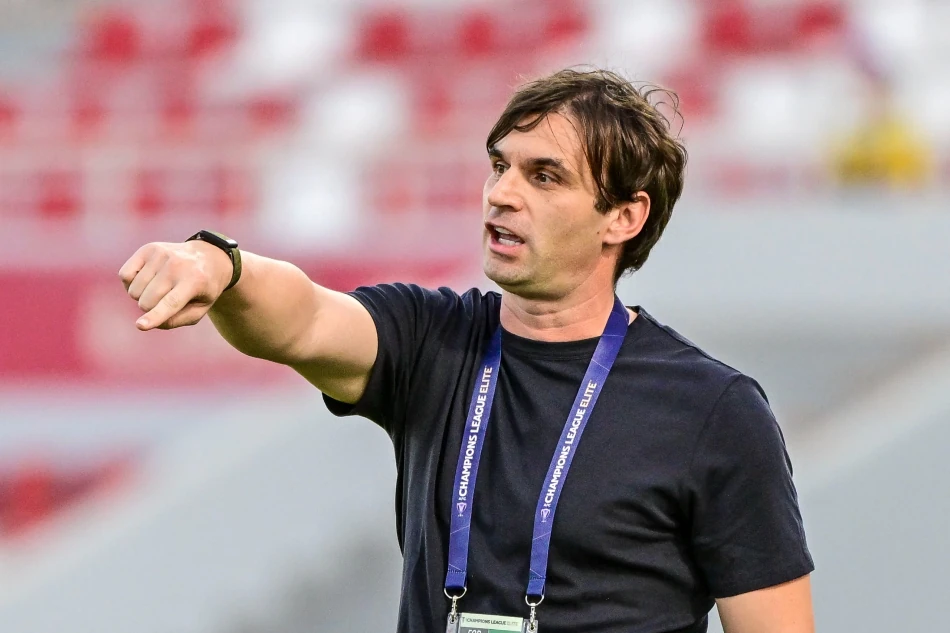
Sharjah Coach Unveils Secret Behind Surprise Asian Win Over Al Gharafa
Sharjah's Dramatic Comeback Victory Signals Growing UAE Football Ambitions in Asian Champions League
Sharjah FC delivered one of the most thrilling comebacks in recent Asian Champions League history, overturning a deficit to defeat Qatar's Al Gharafa 4-3 in a last-minute thriller during Monday's Elite ACL opener. The victory not only showcased the resilience of Emirati football but also highlighted the growing competitive depth across Gulf football as regional clubs vie for continental supremacy.
The Comeback That Defied Logic
Serbian coach Miloš expressed his elation following what he described as an "extraordinary scenario" that unfolded at Sharjah Stadium. After trailing in the first half, Sharjah mounted a spectacular second-half revival that culminated in four goals and a dramatic winner in the dying moments.
"The positive aspect of the match was the team's comeback in the second half, achieving a four-goal performance after being behind," Miloš said in his post-match press conference. The turnaround came after what the coach described as crucial halftime adjustments, where he challenged his players to embrace responsibility rather than shy away from the pressure.
Tactical Resilience Under Pressure
The victory was particularly impressive given Sharjah's early setbacks, including forced substitutions due to injuries that disrupted their first-half rhythm. Miloš, now in his third season coaching in the UAE, demonstrated his understanding of regional football dynamics by making tactical adjustments that perfectly suited the high-intensity nature of Gulf football.
The coach specifically praised midfielder Vita Vitai, whose energy and technical abilities proved instrumental in the comeback. This highlights a growing trend among UAE clubs to blend local talent with carefully selected foreign players who can adapt to the unique demands of Middle Eastern football.
Regional Football's Rising Stakes
This result carries significance beyond just three points in the group stage. It represents the UAE's continued investment in football excellence, following in the footsteps of Saudi Arabia's aggressive expansion in global football and Qatar's World Cup legacy infrastructure.
Sharjah's victory over a Qatari opponent adds another layer to the friendly but intense sporting rivalry between Gulf nations, each seeking to establish continental dominance. Al Gharafa, backed by Qatar's substantial football investments, would have expected a more comfortable result against their Emirati counterparts.
The Fan Factor and Home Advantage
Miloš acknowledged the crucial role of home support, noting that passionate crowds remain a decisive factor in high-stakes continental matches. His candid admission that "fans trust players, not coaches" reflects the pragmatic reality facing foreign coaches in the region, where results must speak louder than reputation.
This honest assessment suggests a coach who understands the cultural nuances of Gulf football, where fan loyalty runs deep and expectations remain consistently high regardless of opposition quality.
What This Means for UAE Football's Continental Ambitions
Sharjah's dramatic victory sends a clear message to other Asian powerhouses: UAE clubs are no longer content with mere participation in continental competitions. The tactical sophistication and mental resilience displayed in this comeback victory suggests a maturation of Emirati football that could challenge traditional Asian football hierarchies.
For investors and football administrators across the region, this result validates the ongoing investments in coaching infrastructure, player development, and stadium experiences that have transformed Gulf football over the past decade. The combination of passionate local support, strategic foreign coaching, and carefully assembled squads appears to be yielding tangible results on the continental stage.
Most Viewed News

 Sara Khaled
Sara Khaled






